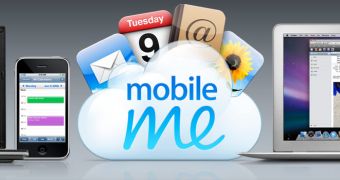Since the transition to MobileMe, Apple has issued several knowledge base articles instructing customers on how to use the service, as well as on how to protect themselves from hackers. Why exactly phishers are so keen on targeting MobileMe users is unclear, but Apple is making sure its customers are prepared in case of an attack.
Apple has recently posted two new Support documents aiming to inform customers about the dangers of phishing scams surrounding its MobileMe service. One of these articles, “MobileMe: Getting help with emails you receive from MobileMe,” explains what you, as a customer, can do if you receive an email from MobileMe and need further assistance with an issue. A valid email (from Apple) should include links to relevant support articles, Apple says, and hold information on how to initiate a real-time Chat session with a MobileMe Support advisor.
“Email messages from MobileMe will only direct members to me.com for updating their personal or credit card information,” Apple warns. “Be wary of messaging that provides a link or attachment to update your password, credit card or any other personal information. See Identifying fraudulent ‘phishing’ email for more information and to ensure you only respond to valid Apple emails,” the company adds.
A second technote posted on Apple’s Support section aims to show MobileMe users how to identify one such fraudulent phishing email. It begins with Apple’s definition of “phishing” saying it is also known as “carding” or “spoofing.” According to the Mac maker, “[It] refers to email that attempts to fraudulently acquire personal information from you, such as your account password or credit card information. On the surface, the email may appear to be from a legitimate company or individual, but it's not.”
“As a general rule, never send credit card information, account passwords, or extensive personal information in an email unless you verify that the recipient is who they claim to be,” the company adds. “Many companies have policies that state they will never solicit such information from customers by email.” Apple then proceeds with offering tips that can help customers determine an email’s legitimacy.
Visit Apple here and here for the two Support documents in question.

 14 DAY TRIAL //
14 DAY TRIAL //